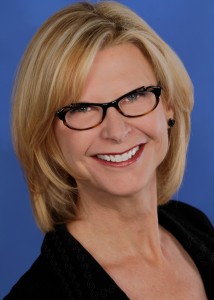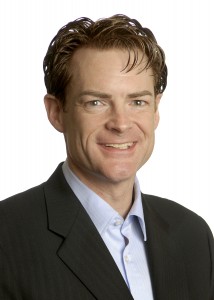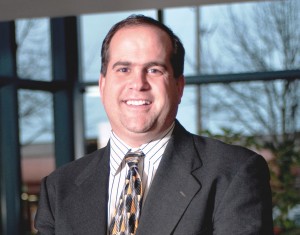 Is there a difference between good business management and sustainability? Not according to the WCTA panel on December 6, 2012, which was moderated by WCTA Board Member John Gardner, Vice President and Dean of the Bainbridge Graduate Institute.
Is there a difference between good business management and sustainability? Not according to the WCTA panel on December 6, 2012, which was moderated by WCTA Board Member John Gardner, Vice President and Dean of the Bainbridge Graduate Institute.
Kevin Wilhelm of Sustainable Business Consulting said sustainability is almost completely consistent with hard-nosed business thinking. It is entirely consistent with corporate objectives: maximizing returns, cutting costs, improving brand, and maximizing shareholder value. No one, according to Kevin, is implementing sustainability because ‘it is the right thing to do.’ It is implemented–and widely–by individual business cases.
TJ DiCaprio reported that Microsoft is motivated by achieving business objectives, corporate citizenship, and reducing energy consumption. Carbon is now priced at Microsoft and it is reflected in business unit performance measurement. Pollution and sustainability needed to be translated into business relevant terms, she said, and then they become a compelling business came for management. Information technology is the source of 2% of global emissions. Find TJ’s presentation slides here and Microsoft’s Becoming Carbon Neutral document here.
Jim Hannah of Starbucks emphasized that employee retention is an important benefit of the company’s sustainability programs. He told us that every new store will be LEEDS certified. Sustainability is part of Starbuck’s DNA, but it needed to be translated into understandable business terms within the company.
Patrick Drum of the Arbor Group UBS told us that current metrics to evaluate socially responsible investing didn’t even exist six months ago. Find Patrick’s presentation here.
Find YouTube video of the conference here. (It is divided into 10 minute segments.) Section 1 | Section 2 | Section 3 | Section 4 | Section 5 | Section 6 | Section 7 | Section 8
Here are short bios of the panelists:
 John Gardner, Vice President and Dean, Bainbridge Graduate Institute, Moderator. John has been a key leader in the growth of BGI over the past two years. Prior, he was VP at WSU responsible for leveraging WSU’s assets for economic growth and vitality of the state. He filled a similar role at Missouri as VP for Research and Economic Development. In all, he has been a student, faculty member, or administrator at five land grant universities. Gardner is a native of the Kansas City area and earned degrees in agriculture and agronomy at Kansas State and a PhD at Nebraska in plant physiology. Though most of his career has been in the US Great Plains, his graduate work in both institutions was supported by US-AID in the sorghum/millet program INTSORMIL directed at Africa and India. While at the Missouri, his international research and development efforts focused on East Asia. He spent twenty years in ND, much of it as Director of the NDSU Carrington Research Extension Center. His work on the domestication of new crops led to business interests throughout the 1990’s. He was one of the founders and chief executive of AgGrow Oils, a 540 member LLC that integrated the production, processing, and marketing of both novel and designer oilseeds.
John Gardner, Vice President and Dean, Bainbridge Graduate Institute, Moderator. John has been a key leader in the growth of BGI over the past two years. Prior, he was VP at WSU responsible for leveraging WSU’s assets for economic growth and vitality of the state. He filled a similar role at Missouri as VP for Research and Economic Development. In all, he has been a student, faculty member, or administrator at five land grant universities. Gardner is a native of the Kansas City area and earned degrees in agriculture and agronomy at Kansas State and a PhD at Nebraska in plant physiology. Though most of his career has been in the US Great Plains, his graduate work in both institutions was supported by US-AID in the sorghum/millet program INTSORMIL directed at Africa and India. While at the Missouri, his international research and development efforts focused on East Asia. He spent twenty years in ND, much of it as Director of the NDSU Carrington Research Extension Center. His work on the domestication of new crops led to business interests throughout the 1990’s. He was one of the founders and chief executive of AgGrow Oils, a 540 member LLC that integrated the production, processing, and marketing of both novel and designer oilseeds. Tamara “TJ” DiCaprio, Sr. Director, Carbon and Renewable Energy Policy, Microsoft: TJ is responsible for designing and managing Microsoft’s new carbon neutral policy with internal carbon fee model that drives accountability while supporting efficiency and green projects. TJ has worked for Microsoft for 15 year, and has over 25 years of experience in the technology industry. She brings an educational background of Environmental Studies and Energy from the UC Santa Barbara and graduate work from Marylhurst, as well as a history of policy leadership to the role. TJ is a certified pilot and enjoys sailing and diving. She has led several expeditions piloting aircraft across the Americas and South Africa and sailed extensively off the coast of North America, French Polynesia, Croatia, and Turkey. TJ is a member of the Explorer’s Club and a Founding Member of the Santa Barbara Maritime Museum.
Tamara “TJ” DiCaprio, Sr. Director, Carbon and Renewable Energy Policy, Microsoft: TJ is responsible for designing and managing Microsoft’s new carbon neutral policy with internal carbon fee model that drives accountability while supporting efficiency and green projects. TJ has worked for Microsoft for 15 year, and has over 25 years of experience in the technology industry. She brings an educational background of Environmental Studies and Energy from the UC Santa Barbara and graduate work from Marylhurst, as well as a history of policy leadership to the role. TJ is a certified pilot and enjoys sailing and diving. She has led several expeditions piloting aircraft across the Americas and South Africa and sailed extensively off the coast of North America, French Polynesia, Croatia, and Turkey. TJ is a member of the Explorer’s Club and a Founding Member of the Santa Barbara Maritime Museum.- Jim Hanna, Director, Environmental Impact, Starbucks Coffee Company:
 Since joining Starbucks in 2005, Jim has collaborated with partner corporations and nongovernmental organizations to help shape the company’s environmental strategy. He contributes to enterprise-wide initiatives that support green building, energy conservation, international procurement, recycling, and waste reduction efforts. Prior to Starbucks, Jim served as Director of Environmental Affairs for Xanterra Parks & Resorts at Yellowstone National Park. In the position, he oversaw many progressive environmental initiatives in operations as the primary concessionaire in the park including an ISO 14001-certified Environmental Management System. Before escaping to Yellowstone, he worked as Director of Operations for Teris Environmental in Los Angeles, managing the company’s seven offices in North America. A native of Olympia, Jim earned a BS in Environmental Sciences from WSU and is a U.S. Green Building Council LEED-accredited professional. He serves on the board of directors for the National Recycling Coalition, Washington Environmental Council, and Yellowstone Park Foundation.
Since joining Starbucks in 2005, Jim has collaborated with partner corporations and nongovernmental organizations to help shape the company’s environmental strategy. He contributes to enterprise-wide initiatives that support green building, energy conservation, international procurement, recycling, and waste reduction efforts. Prior to Starbucks, Jim served as Director of Environmental Affairs for Xanterra Parks & Resorts at Yellowstone National Park. In the position, he oversaw many progressive environmental initiatives in operations as the primary concessionaire in the park including an ISO 14001-certified Environmental Management System. Before escaping to Yellowstone, he worked as Director of Operations for Teris Environmental in Los Angeles, managing the company’s seven offices in North America. A native of Olympia, Jim earned a BS in Environmental Sciences from WSU and is a U.S. Green Building Council LEED-accredited professional. He serves on the board of directors for the National Recycling Coalition, Washington Environmental Council, and Yellowstone Park Foundation.  Kevin Wilhelm, CEO, Sustainable Business Consulting: Kevin is a highly regarded business consultant in the field of sustainability and climate change. He is the CEO of Sustainable Business Consulting, a Seattle-based consulting firm focused on practical solutions that deliver profit improvement through the use of sustainable business practices. Kevin brings over 16 years of experience working with businesses ranging from Fortune 500 multinationals to government agencies to renewable energy start-ups. Some of his clients include Nordstrom, REI, The North Face, Coinstar/Redbox, Drugstore.com, and BECU. His firm works with companies to measure their sustainability and carbon impacts, develop successful implementation goals and strategies, engage employees through sustainability training, and help them communicate their CSR efforts both internally and externally. He is the author of the acclaimed Return on Sustainability: How Business Can Increase Profitability & Address Climate Change in an Uncertain Economy. He is an adjunct professor at the Bainbridge Graduate Institute where he teaches Sustainable Business.
Kevin Wilhelm, CEO, Sustainable Business Consulting: Kevin is a highly regarded business consultant in the field of sustainability and climate change. He is the CEO of Sustainable Business Consulting, a Seattle-based consulting firm focused on practical solutions that deliver profit improvement through the use of sustainable business practices. Kevin brings over 16 years of experience working with businesses ranging from Fortune 500 multinationals to government agencies to renewable energy start-ups. Some of his clients include Nordstrom, REI, The North Face, Coinstar/Redbox, Drugstore.com, and BECU. His firm works with companies to measure their sustainability and carbon impacts, develop successful implementation goals and strategies, engage employees through sustainability training, and help them communicate their CSR efforts both internally and externally. He is the author of the acclaimed Return on Sustainability: How Business Can Increase Profitability & Address Climate Change in an Uncertain Economy. He is an adjunct professor at the Bainbridge Graduate Institute where he teaches Sustainable Business.- Patrick T. Drum CFA, CFP, Financial Advisor and Senior Portfolio Manager at the Arbor Group/UBS Financial Services Inc. provided an overview of new practices in evaluating social responsibility in companies.
- December 6, 2012
- Fourth & Madison Building, 925 Fourth Ave, 18th Floor Conference Room, Seattle
- This event sold out.
This was the first part of a two part series exploring corporate sustainability.